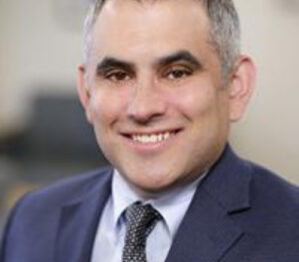Multiple sclerosis (MS) is a chronic, debilitating disease of the central nervous system. The symptoms of MS can range from mild—producing little or no disability—to severe—leading to substantial disability, sometimes quickly. The unpredictable physical and emotional effects can be life-long, but early diagnosis and effective multiple sclerosis treatment can help manage symptoms and change the course of the disease.
MULTIPLE SCLEROSIS SIGNS AND SYMPTOMS
The majority of people often experience their first symptoms of MS between the ages of 20 and 40. Symptoms of MS can be mild to severe and may change over the course of the disease. These can include:
- Fatigue or lack of energy
- Walking difficulties
- Numbness/tingling in the arms and legs
- Stiff or weak muscles
- Vision problems
- Dizziness and vertigo
- Bladder and bowel problems.
- Sexual problems caused by nerve damage to the central nervous system
Less common symptoms can include hearing loss, speech problems, swallowing problems, tremors, seizures, breathing problems.
MULTIPLE SCLEROSIS TREATMENT & CARE

Our expert team at The Linda E. Cardinale MS Center offers comprehensive care for MS patients, including:
- Injection training
- Medication review
- Symptom management
- Patient and family education
- Patient advocacy
- Coordination of services within the center and community

The MS therapies practiced at CentraState are key components to treating symptoms and helping patients achieve their best health, such as:
- MRI
- Lumbar puncture
- Triple evoked potential testing
- EMG
- EEG
- Physical therapy
- Occupational therapy
- Speech therapy
- Aquatic therapy
- Patient and family support group
- Wheelchair clinic
- Transportation
- Orthotist-prosthetist evaluations
- Cognitive testing and training
- Patient education programs
- Onsite outpatient pharmacy
- Wellness program

Treatment for multiple sclerosis typically focuses on slowing the progression of the disease, speeding recovery from attacks, and managing MS symptoms. Treatments may include:
- Immunomodulators/disease-modifying therapies
- Chemotherapy
- Monoclonal antibodies
- Corticosteroids
- Intrathecal baclofen and pump management for severe spasticity
- Symptom management
- Bowel and bladder management
- Botox®
- VitalStim® therapy for swallowing disorders
MULTIPLE SCLEROSIS TREATMENT & WELLNESS PROGRAMS
The Linda E. Cardinale MS Center offers two comprehensive wellness programs designed to address the physical and psychological issues associated with MS.
MS Wellness Program
This one-of-a-kind and award-winning 12-week program helps strengthen mind and body through:
Education: Patients learn about best nutrition practices for those with MS, how to manage stress and deal with continence issues, and how to avoid depression.
Aquatics: A cool-water pool, buoys, and other water-resistance tools help patients build strength and improve balance. The program also offers non-certification scuba classes, which help patients improve their balance while having fun.
Exercise: Group classes help improve movement and increase flexibility through various seated exercises, weightlifting, strength and conditioning, tai chi, and Pilates techniques.
Wellness Graduate Program
After completing the initial 12-week MS Wellness Program, graduates may participate in an advanced program that consists of strength and balance classes, yoga and aquatics. This includes tai chi, a system of gentle exercises and flowing movements that reduces stress and promotes balance.
To learn more about our MS treatment and wellness programs, call CentraState’s Rehabilitation Department at 732-294-2700 or speak with your doctor.












